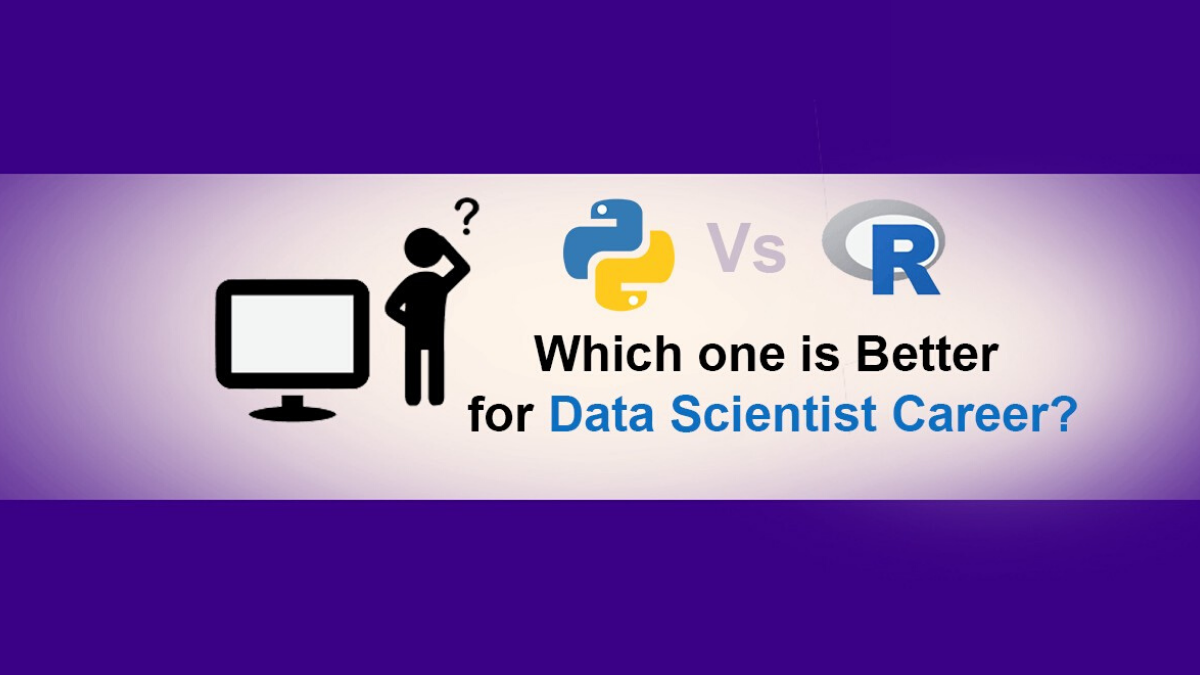Every new data scientist is faced with this question: should I learn python for data science? This question is really important if you are starting your career in data science. Because any language takes enough time to learn. So which language should you choose? And here I will also explain to you why python language is better than R for a data science career. But here also I will clear to you all that choosing R language is not a bad choice. But based on my experience I will suggest you learn python for data science.
Choosing R does not negatively affect your employment opportunities. Depending on your team, you can even learn it. In fact, Facebook uses R for the analytics components of its internal survey tools, and language is supported in our data science infrastructure.
However, I believe that as a practicing data scientist, learning Python first will help you become more productive and contribute to your team in key areas outside of statistical modeling.
Learning Python can make your business more effective, and your career will benefit more.
Reasons why you should choose Python over R
Reason #1 you must learn Python Anyway
Most companies require their data scientists to do more than just predictive models (i.e. machine learning). At the very least, you will likely need to manage the data pipelines that power your models, and these data pipelines are likely to be built in Python.
The industry standard for pipelines today is Python-based airflow, and on Facebook, we use an internal Python tool that is similar.
In fact, I estimate that 100% of our Facebook data scientists use Python every week, while around 10% use R actively.
Choosing Python is therefore probably more efficient for you: Even though you can probably avoid using R after landing a job, it is unlikely that you can avoid using Python.
Reason #2 Python is Easier to Learn than R
The time it takes to become employable is extremely important, especially if you study outside of college.
Python has a reputation for being easy to learn. After learning both Python and R (though much deeper in Python), I think Python’s reputation is well deserved.
The benefits of Python’s ease of learning become particularly apparent when you start using language functions beyond statistical modeling. These features include packing your projects for distribution, developing command-line interfaces, and modeling your data structures with ORMs like SQLAlchemy.
Using Python will help you master these features and your career will benefit.
Reason #3 Python has Larger Community than R
Python is one of the most popular programming languages in the world, with a huge community on websites like Stack Overflow, Kaggle, and even Medium.
So if you inevitably come across a problem that you can’t solve on your own, you are more likely to find people who have found it before you, asking for help and getting a solution.
This means that you spend less time fixing a compatibility problem with your system and more time providing code that affects your business.
Reason #4 Deploying Model is Easier with Python Language
Ultimately, you will probably reach the stage of your career where you want to make your models available to end-users in real-time. To fix this you need to build a REST based web application, which is much easier with Python.
In fact, Python has some of the most popular web application frameworks in the world, namely Django and Flask. Your company’s internal deployment tools are more likely to support these executives, and R. relatively less often.
The popularity of these frames also means that they are well supported by the platform as a service provider like Heroku, Amazon Lightsail and many others. You can publish your personal projects online for a fraction of the effort required to deploy the same projects in R.
If you’re lucky enough that your company uses a Python framework for its own products, learning Python means you’re dangerous enough to wire up your own tracking in the app. The ability to independently add more features to your models has a dramatic impact on the impact you can have.
So these are the reasons why python language is better than r for data science careers.
Read More: 7 Best Online Data Science Course in 2020
R is also very popular in the academic community, so documenting packages in R is much more directly related to academic research. This documentation can be very useful for data scientists who are working on the latest research.
But I don’t think the lack of a Rstudio equivalent is enough to offset Python’s relative strengths. Careers at data science universities are also much rarer, which makes research-related R-forces less relevant for the majority of data scientists.
Despite the strengths of R, I think your career will benefit more if you learn Python instead.
Finally, it’s worth mentioning that R language is not a bad choice for a data science career. But python is just more likely to a good for your data science career. So depending upon the reasons and facts I would suggest that python language is better than R for data science careers.
Conclusion:
I hope you have understood why python language is better than R for a data science career. if you are also planning to make a career in data science then I would suggest you choose python language over the R language.
NearLearn provides the best online data science with python training in India. It provides online as well as classroom training. It provides training on various courses like machine learning, artificial intelligence, data science, blockchain, react-native, reactJs, full-stack development, etc.
